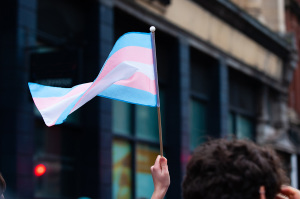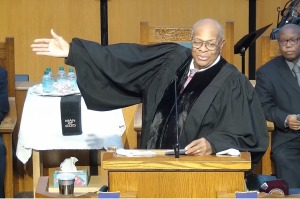America Marks Religious Freedom Day
The United States commemorates on Wednesday the freedom of worship among its citizens, marking Religious Freedom Day.
President Bush issued a proclamation calling "on all Americans to reflect on the great blessing of religious liberty, endeavor to preserve this freedom for future generations, and commemorate this day with appropriate events and activities."
The day celebrates the 1786 landmark passage of the Virginia Statute for Religious Freedom, which acknowledged that the human mind was made by God to be free and men should have the conscience to practice the faith of their choosing.
In addition to the President's proclamation, the Department of Education is sending guidelines to schools, urging administrators to commemorate the day.
Eric Buehrer, president of Gateways to Better Education, said that while some schools keep quiet on the day because they feel they are guarding the First Amendment, they are actually restricting free speech.
"The guidelines are really clear," Buehrer told The Christian Post. "It's really a matter of free speech. Students have the right to speak to whomever they want to, including their maker, and about whatever they want to, including their faith."
His group founded religiousfreedomday.com as a way to inform educators, parents, and citizens about ways they can observe the day.
Buehrer added that Jan. 16 was not intended to be celebrated as "religious diversity day."
"Schools shy away from this because they think that to celebrate Religious Freedom Day they have to include all the religions and religious leaders of community," he said.
But all it takes is five minutes, said Buehrer, noting that it's constitutional for teachers to mark the day with a civics lesson or by asking students to write a short essay on their religious liberties as a way to inform them of their civil right to express whatever faith they have.
Thomas Jefferson, who drafted the legislation along with George Mason, considered it one of the three greatest accomplishments of his life, along with the writing of the United States Declaration of Independence and the founding of the University of Virginia.
At the time, the Church of England was the official religion in Virginia. Jefferson's statute stopped the practice of taxing people in Virginia to pay for the support of the local clergy, and it protected the civil rights of people to express their religious beliefs without suffering discrimination.
He said the freedom to worship was "a liberty deemed in other countries incompatible with good government, and yet proved by our experience to be its best support."
The statute eventually became the basis of the First Amendment in the U.S. Constitution which prohibits the establishment of religion and bars Congress from passing a law prohibiting the free exercise thereof.
On Wednesday night, the Council for America's First Freedom, which promotes religious liberty worldwide based upon Jefferson's papers, will be presenting the 2008 National First Freedom Award to three recipients for advancing religious liberty in the United States.





























